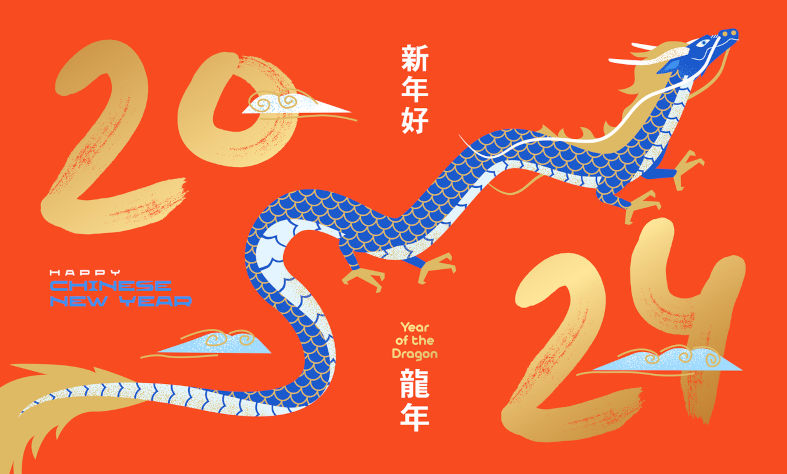Welcome the year of the Dragon!
February 9, 2024
The Year of the Dragon is bound to be big. Among the twelve zodiac animals that mark the traditional cycle of calendar years, the dragon is the only mythical beast and the most powerful. It stands in marked contrast to the rabbit that will hand over its psychic reign on 10 February. Soothsayers may well emphasise prosperity and good fortune in their forecasts, but most people will not believe them. Those of a scientific cast of mind may discount astrological beliefs as mumbo jumbo, but they certainly affect the expectations of a large proportion of the peoples of East Asia.
The last dragon year was 2012, marking the height of the European debt crisis and, across the Middle East, the brutal crackdown on the protest movements of the Arab Spring. Julia Gillard defeated Kevin Rudd as Leader of the Labor Party and became our first woman Prime Minister. In China, it was the year that Xi Jinpings main rival Bo Xilai was suspended from the Politburo and subsequently tried for corruption. Readers may remember the dramatic story of Bos implication, together with his wife, in the murder of British businessman Neil Heywood.
One particularly dramatic dragon year in China was 1976. The beloved Premier Zhou Enlai died in January and popular expression of grief at his passing at Ching Ming, the traditional day of mourning in April, was suppressed. In July a massive earthquake demolished the city of Tangshan and killed at least 300 thousand people. Then in September Chairman of the Communist Party Mao Zedong died after a long illness and in October the so-called Gang of Four who had largely ruled in his name were toppled from power by Maos successor Hua Guofeng.
Long, the dragon of the East, is a different animal from the Western beast of the same name. In East Asian mythology, the dragon emperor rules from his watery kingdom. He rides the storm clouds and roars in the thunder. Because Long brings rain, he is worshipped by Asian farmers who depend on water to irrigate their fields, so he is a beneficent power, not the wicked fire-breathing winged creature that is often associated in Christian legends with evil and with Satan.
Both beasts share one characteristic: they are powerful and unpredictable. At the beginning of the lunar New Year, the people of China, Korea, Vietnam, and Japan, all pray for peace and prosperity. They may not be totally happy with their present lot, but they do not aspire to revolution or sudden change. Disasters are literally ill-starred events that bring no good to anyone, economically, politically or socially.
Every zodiac animal conveys extra protection and luck to those who are born in the appropriate year, and it is said that those under any particular sign share the personality traits of the spirit sign. It is not surprising to learn that contemporary dragons include highly unpredictable people such as Vladimir Putin, Boris Johnson and Nancy Pelosi. Let us hope that their stars do not shine bright in the months to come!
As I have said, the Eastern dragon, the Long, is king of the watery underworld and controls rivers, oceans and rain. Let us hope that this year he does not bring chaos to those systems.
Seasonal moderate rain is good, and cyclones should be part of the natural cycle of oceanic weather patterns, but the dragons have been disturbed from their natural habitat and are making their power known. Unfortunately, as we have seen in recent years, extreme weather events are inevitable as global temperatures rise and they are increasingly unpredictable.
Stay safe, everyone!

